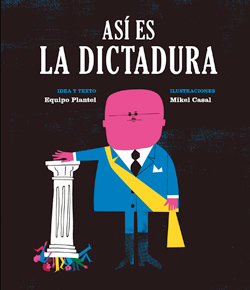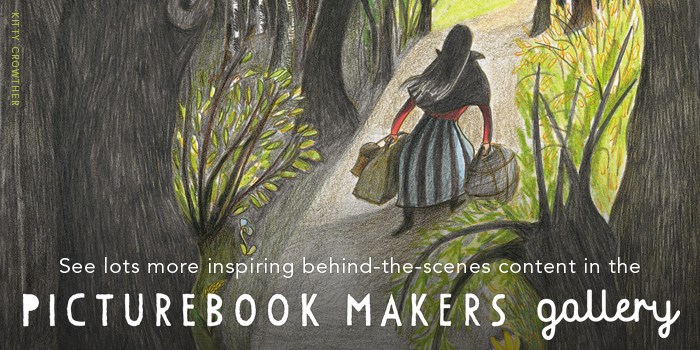< Back to posts
Mikel Casal
Spain

Mikel Casal is an artist and illustrator from the Basque Country in Northern Spain. He's produced work for a wide range of publishing and editorial clients around the world, including The Guardian (UK), Tatler (Hong Kong), Courrier International (France), El Comercio (Peru), The Boston Globe (USA) and Media Vaca (Spain).
In this post, Mikel talks about ‘Así es la dictadura’ (So this is a dictatorship), one of four books originally published in the 1970s and republished by Media Vaca in 2015 with new illustrations. This brilliant series won the 2016 Bologna Ragazzi Non-Fiction Award.
Visit Mikel Casal's website
Visit Mikel Casal's Instagram page
Mikel: I'm from San Sebastián, a coastal city in the Basque Country in Northern Spain. My illustrations appear in various newspapers, magazines, and books from around the world. I've also received some awards, like watching the sun rise as I try to surf a good wave.
I was ten when the dictator Francisco Franco died. I was old enough to be aware of the pain and the years of repression suffered by an entire country. Especially when you see that pain and repression reflected in your family and in the place where you were born.
‘Así es la dictadura’ (So this is a dictatorship) is one of four books that were originally published between 1977 and 1978 by the publishing house, La Gaya Ciencia from Barcelona, under the generic title, ‘Libros para mañana’ (Books for tomorrow). Media Vaca's publishers thought that despite it being almost forty years since those first editions, the text was still current, sadly. So they decided to republish them with new illustrations.
For me, as an illustrator and as a parent, the proposal could not have been more interesting: to collaborate on a book about politics for children, for the critical and reflective education of a child, maybe a ten-year-old boy as I was when the dictator Franco died – and in these times where there is little reflection and political criticism.
Dictators are vicious and terrible, but also a little ridiculous and megalomaniacal. With their medals, uniforms, and bombastic, exaggerated and theatrical gestures. They do look rather comical sometimes.
When searching for the right tone for the book, I couldn’t help being inspired by the Ernst Lubitsch film, ‘To Be or Not to Be’, and Chaplin's ‘The Great Dictator’.
I never considered a serious and harsh look for the illustrations, despite the seriousness and harshness of the subject matter. I wanted to emphasise the almost theatrical, tragicomic aesthetics of every dictatorship, full of ridiculous lies.
An interesting part of the process was coming up with the endpapers for the book. At the very beginning, Vicente Ferrer from Media Vaca suggested the idea of drawing caricatures of dictators throughout history. Unfortunately, there were so many I could have drawn! So we made the decision to feature the most emblematic ones, and also make sure they were contemporaries. We also wanted there to be a balanced representation of countries and continents. And finally, we couldn't focus on dictators of a specific ideology, so we included both right-wing and left-wing dictators. With these premises we made a list, and – after discarding some and adding others – we arranged them by date of birth on the front endpapers and by date of death on the back endpapers. Some of them are still alive...
I would like to finish by repeating some words I heard from my publishers: “Children are interested in everything adults are interested in. You must explain things to them, even if it requires effort.”
Illustrations © Mikel Casal. Post translated by Gengo and edited by dPICTUS.
Así es la dictadura /
So this is a dictatorship
Equipo Plantel & Mikel Casal
Media Vaca, Spain, 2015
If we lived in a dictatorship, a book like this wouldn't be possible. But we mustn't be too complacent. Today, dictatorship still continues to be the existing form of government in many countries, while others who claim that they're democratic, unashamedly repeat many of the characteristics of totalitarian governments: There's a high level of corruption, they fail to respect human rights, laws are made behind citizens' backs, and those who govern never provide sufficient explanations.
















